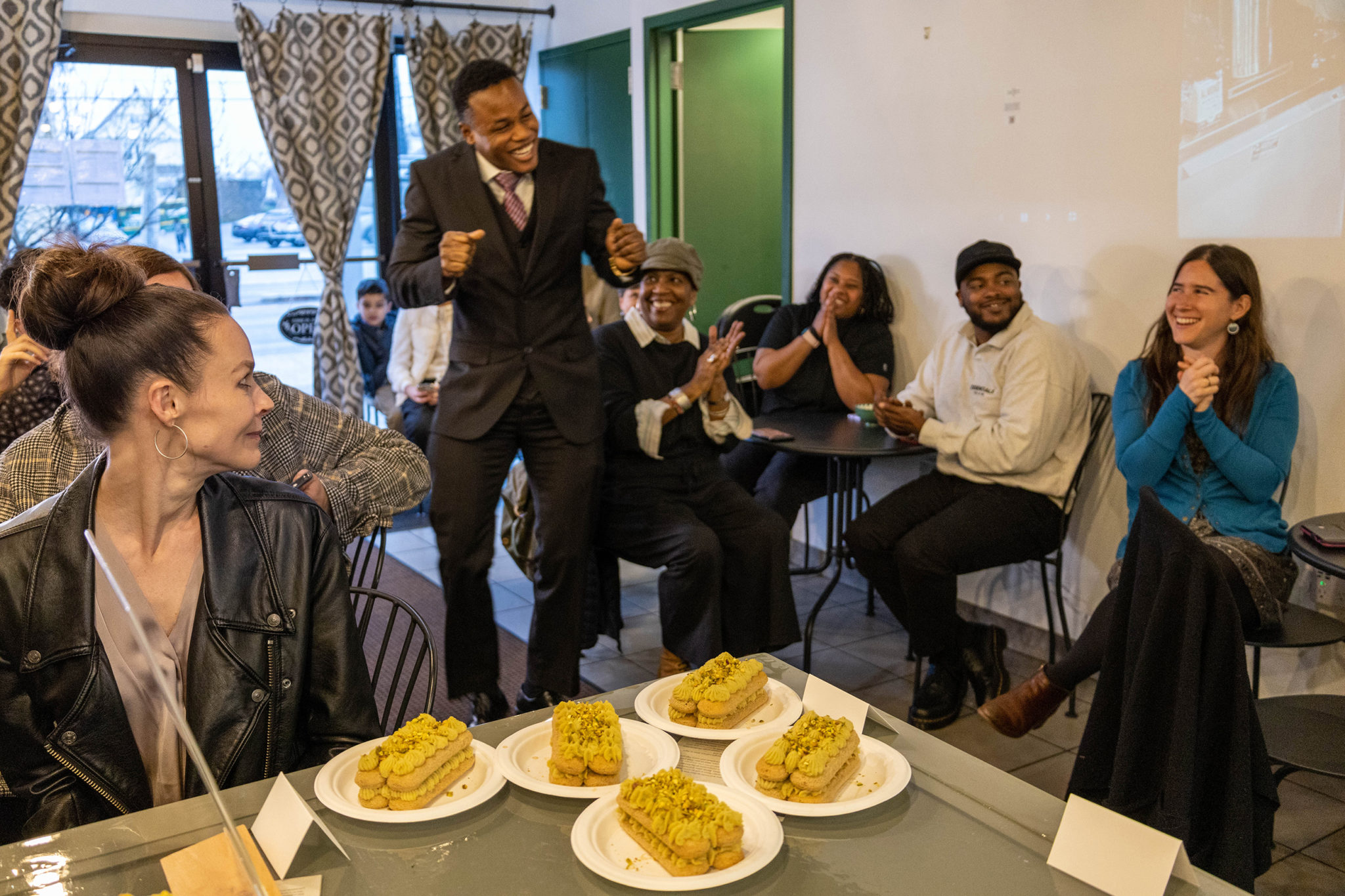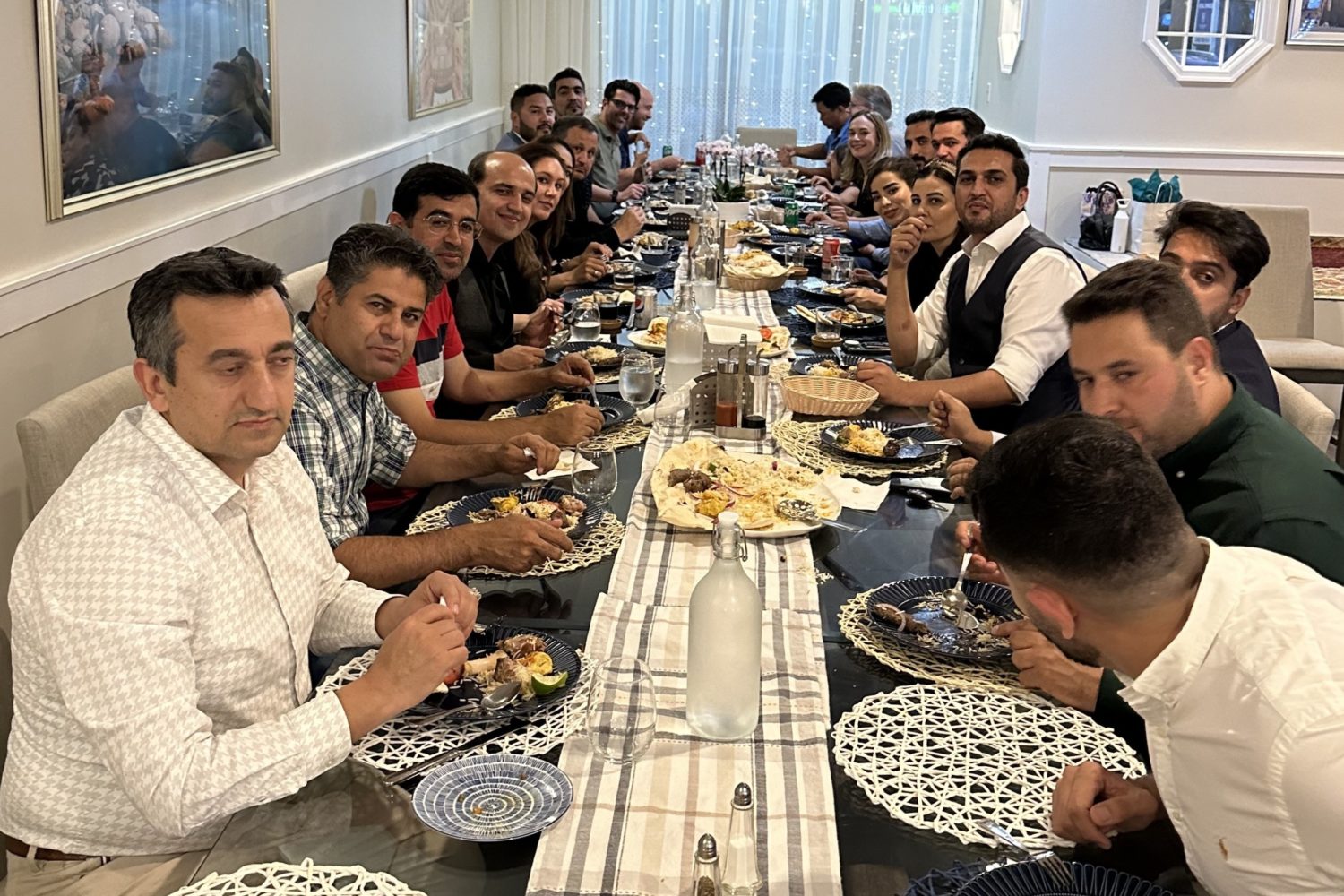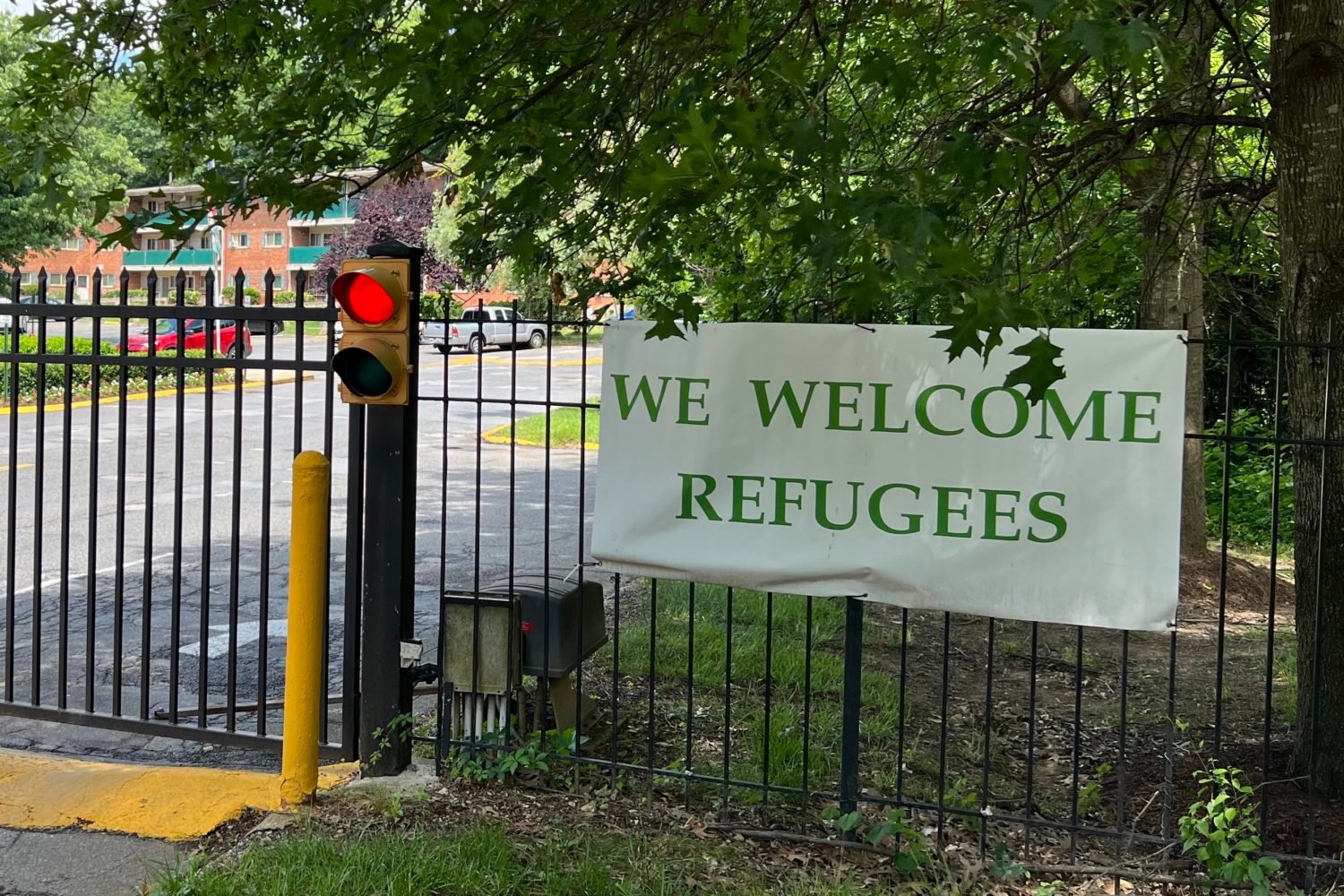One recent evening after closing time, six young restaurant workers and their families huddled around tables inside a new coffee shop in Northeast DC. They tucked into plates of food while chatting in several languages. Some couldn’t communicate much with one another, but they were in a joyful mood. All recently arrived refugees and asylum seekers, they’d just finished an 11-week course at Emma’s Torch, a combination cafe and workforce-development center that trains and certifies recent arrivals and gets them jobs in the restaurant industry.
These students were just the latest graduates of Emma’s Torch, which opened in DC last winter. (It was founded in New York in 2016.) For their commencement ceremony, each had cooked a dish that represented their background. Caracas native Alexander Rigaud—a tattoo artist who fled Venezuela under threat of arrest after participating in political protests—made asado negro, a beef stew. Presenting it to his peers and the nonprofit’s teachers, he explained that it was invented by a Venezuelan cook who found a way to save a dish he had burned. Then he drew a parallel: “Gastronomy symbolizes the perseverance of the residents. This accident became one of the best dishes in my country. Refugees make adversity into incredible things.” Since coming to the US, Rigaud has dreamed of opening a food truck with his family and serving Venezuelan breakfasts.
The training at Emma’s Torch can lead to real opportunity. Recent graduates have secured union positions in food service at George Washington University and BWI Airport, for example. But many aren’t actually planning for a long career in the food business. One Afghan refugee—who asked not to be named out of concern for relatives back home—has a master’s degree in journalism and communications and sees restaurant work as a bridge to employment in his own field.
The morning after graduation, Emma’s Torch was back to work as a regular—albeit somewhat overstaffed—cafe for the neighborhood, with a new class of students on the way. To join the program, participants go through interviews and information sessions, just like at any job. They’re all refugees or others here due to forced migration. To apply, potential students must have work authorization and understand some basic kitchen-safety-level English. (The program also includes English lessons.) And along with their training, participants are paid minimum wage. “We see shy—sometimes not so shy—students come in on day one, and they don’t know what to expect,” says culinary instructor Linda Berry. “They leave having the experience of talking to customers, being able to push out food for paying guests, doing catering around the DC area. The transformation in 11 weeks is incredible.”
This article appears in the May 2024 issue of Washingtonian.















